Controlling Insect Pests In Your Spring Garden
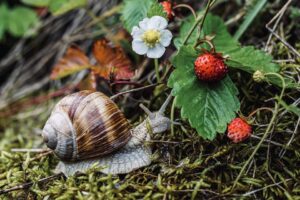
With the arrival of spring, garden enthusiast once again is excited to get into their gardens to do some spring cleaning as they prepare flower and vegetable beds to reap the rewards of their labor as they look forward to their gardens and landscapes being transformed or painted with their favorite flowering plants in full bloom or reaping a bountiful harvest from their vegetable or herb gardens. Garden insect pests that have been overwintering will also emerge from their hiding place and resurface to continue their destructive behavior with the intent to wreak havoc by feeding on our prized garden plants.
Their presence can become a challenge, but with proper preparation or putting the right plan in place, we can stay ahead of them by reducing their population where they are easily managed, ensuring that our garden plants thrive. However, good management practices must be carried out to ensure our success.
One such practice we will be discussing is the use of organic pesticides, which have proven to give good results as long as proper guidelines for pesticide use are followed. Organic pesticides are safer to use than conventional pesticides and because of their safe use and popularity, many home gardens and farmlands are reaping the benefits.
Garden Spring Cleaning
If you haven’t as yet then the first step in the right direction is to get things in order, the removal of leaves, trash, and other garden plant material debir will not only have your garden looking polished and clean but will reduce the hiding place for insect pest exposing them to natural predators like birds, lizards and many beneficial insects. The removal of weeds is also important because weeds not only make a garden look unattractive but will compete with garden plants for sunlight, nutrients, and water. Some weeds have been known to carry disease and are a hiding place for insect pests along with rodents like mice and rats.
Cultural Practices
Good garden cultural practices involve proper plant placement, putting plants in the right ( light requirements) location, using the right soil type along with proper water and fertilizer practices, Cultural practices also involve pruning correctly for the right reason and in the right season. IMP or integrated pest management has a lot to do with cultural practices. For example, if a small part of your plant is disease or insect-infected why use pesticides when you can prune that diseased part with a hand pruner avoiding the use of pesticides?
Home-Made Pesticides to Control Garden Pests
Besides purchasing organic pesticides there are many products stored in your pantry or kitchen cabinet that can be used to make home-made pesticides that are safe to use around humans and pets. These pesticides are effective in the control of garden pests.
Mechanical Control
Garden pests like slugs and snails can be picked off plants and thrown into a bucket of soapy water to bring elimination, however, based on the level of infestation may take some time. In the case of a large infestation, you may want to use Sluggo Plus which will not only take care of your slug and snail issues but other listed garden pests. Other products that will bring slug and snail control are Garden Safe Slug & Snail Bait and iron phosphate-based pelleted bait.
Insect Barriers
Insect barriers for example garden mesh netting barriers can be spread over your garden plant beds to keep insects out.
Companion Planting to Control Garden Pest
Companion planting is the integration of certain plant species among your garden plant beds and landscapes that will help to keep insect pests away, this method of gardening is a safe and effective practice that acts as a shield against pests. Plant pests hate the odor these plant species emit, some plants that make great companion plants are garlic, mint, marigold, basil, chives, lavender, rosemary, nasturtiums, catnip, thyme, dill, lemon balm, tansy, lemongrass. oregano, wormwood, citronella grass, petunia etc…
Birds and Beneficial Insects
A garden can really come alive with the activity of birds and beneficial insects, the presence of birds and beneficial insects will help to reduce or control insect pests because birds and beneficial insects use garden insect pests as a food source. The installation of native plants in your garden will naturally encourage birds and beneficial insects. Garden slugs and snails can be controlled with eggshells, and as eggshell breakdowns will add calcium to your soil for garden plants’ uptake and use.
Organic Pesticides
Below is a list of popular organic pesticide brands.
- Diatomaceous Earth.
- Neem oil.
- Garden Safe Multipurpose Garden Insect Killer
- Bio Organic Pesticide
- Chile pepper spray.
- Bacilus thuringiensis.
- Monterey Horticultural Oil.
- Insecticidal soap.
How to Use Organic Pesticides
Although organic pesticides are considered safe, some guidelines follow the use of these pest formulations, before using pesticides always read and follow the manufacturer’s directions for the best results because overuse will not only contribute to wastage but drift off from these pesticides can reach beneficial insects and pollinators negatively impacting them even causing their death.
The Advantages of Organic Pesticides
- Organic pesticides once used according to the manufacturer’s directions on the label are safe for the environment and our ecosystem.
- Organic pesticides should be used in edible gardens because they are non-toxic.
- Improves soil’s health.
- A lower risk of ornamental plant and crop damage.
- Low odor.
- Non-staining.
How to Apply Organic Sprays
When treating garden plants for insect pests make sure to adjust the spray nozzle so that the pesticide comes on fine and misty, coarse, or heavy droppings will prove ineffective. Sprays that come on fine and misty will get total coverage. Spray applications should be made to both the top and the undersides of plant leaves.
Keep in Mind Pollinators’ Beneficial Insects
The ideal time to make organic pesticide applications is during the morning hours when beneficial insects and pollinators are less active, avoid the application of pesticides during the day hours when beneficial insects are most active. Pesticide application during day hours when it is hot can cause plant burn as well.
Additional information
- Don’t apply pesticides if rain is forecast for that day.
- Don’t apply pesticides right after it rains, wait until you’re given the all-clear and to ensure that the plant’s leaves are dried and not wet or soaked with water.
- Water your plants first before applying pesticides because irritating plants right after pesticide application will wash pesticide off the plant’s leaves.
Conclusion
Organic pesticides have made their mark in the gardening world and are used widely in home gardens and on farmlands because of their safety. This spring make organic pesticides your go-to for garden pest control, you will be happy with the results and reap the many benefits as you wage war on garden insect pests reducing and bringing an end to their population.
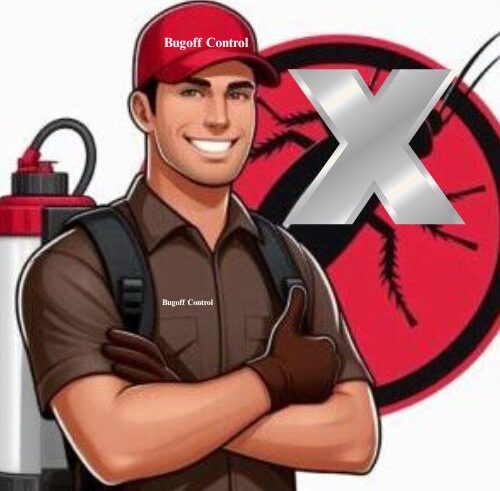


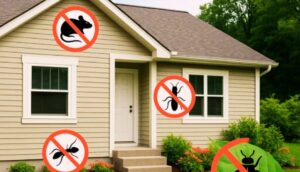
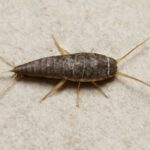
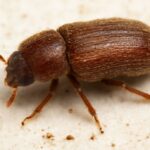
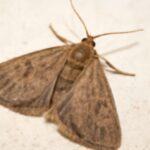
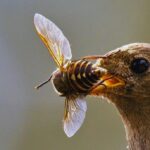
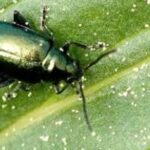
Hello Norman!
I absolutely love the approach you take to organic pest control in gardening! It’s so refreshing to see more people turning to natural methods to protect their plants instead of relying on harmful chemicals. The tips on using neem oil and diatomaceous earth are especially helpful – I’ve tried both, and they’ve worked wonders for me.
One thing I’ve always wondered, though: do you have any advice for dealing with pests like aphids that seem to come back no matter what you try? I have purchased the lady bugs you can get at the store to help, but most just fly off. Thanks for sharing these tips, I’m definitely going to implement some of them in my garden this year!
Angela M 🙂
This post that I wrote should help you. When it comes to releasing beneficial insects, they should be released more in the early evening or the late afternoon. Because night time is near, it will cause lady bugs to settle down and they will most likely stay. I hope this helps.
https://bugoffcontrol.com/how-…
Organic gardening pest control is a fantastic way to keep gardens thriving while protecting the environment, and this article provides excellent insights into sustainable pest management. The emphasis on cultural practices, mechanical control, and companion planting highlights the importance of working with nature rather than against it. Removing debris, using beneficial insects, and implementing homemade pesticides are all great strategies for reducing harmful chemicals in our gardens.
Organic pesticides are particularly valuable because they offer a safer alternative to conventional chemicals. However, as the article notes, using them responsibly is crucial to avoid harming pollinators and beneficial insects. The practical tips on application methods and timing ensure gardeners get the best results while maintaining ecological balance.
Overall, this post is a must-read for anyone looking to adopt eco-friendly gardening practices. Organic pest control is not only effective but also contributes to healthier gardens and a more sustainable planet.
I believe organic gardening is a must and is so important to contributing to a healthy environment and ecosystem. Organic gardening should always be considered first as a safe approach.